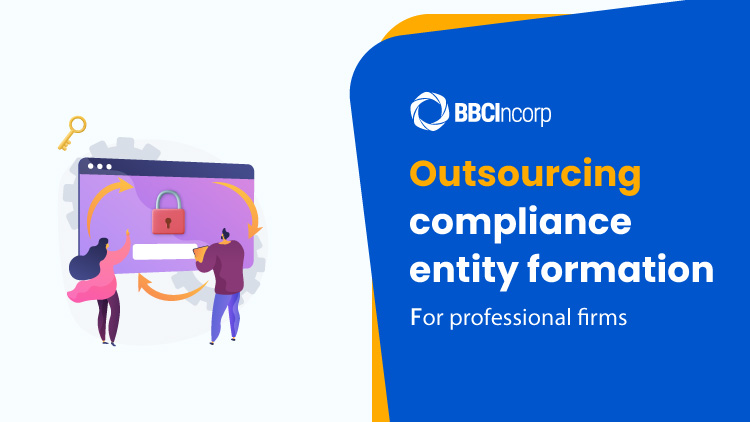Outsourcing Compliance: what you Need To Know - SMS
페이지 정보

본문
Among the most substantial business patterns over the last decade has been to outsource functions that are not core organization activities. Cutting costs and gaining expertise are the two most prevalent motivations for outsourcing. This pattern has long since reached business compliance programs. Many concerns surround this practice in the compliance arena.
Why Outsource Compliance?

The first concern is: why should a company engage an outdoors expert to help in running the compliance program? The reality is that many compliance workplace jobs are consistently outsourced to vendors to make it possible for the compliance office to focus on the program's core elements. Hotlines, sanction screening services, and training programs are frequently outsourced functions.
In some cases, a departure develops the need for help up until the organization can work with a replacement. In others, an existing compliance program requires help to handle included obligations, such as compliance management or HIPAA privacy/security officer support.

When Should You Outsource Compliance?
Organizations choose to hire compliance professionals after identifying weak points or gaps in their operations, such as jobs in compliance, personal privacy or security officer functions. Often times, government investigation drives the decision to bring in specialists. Corporate Integrity Agreements mandate that an organization confirms to having a totally functioning and efficient compliance program.

Managed Care statutes require preserving a reliable compliance program and informing CMS when a compliance officer vacancy takes place. And under the Affordable Care Act, CMS is needed to develop mandated compliance program requirements. Once these requirements are in effect, numerous will seek skilled assistance to satisfy them.
Where Can You Find Compliance Outsourcing Services?
Where can companies discover needed compliance know-how? The most convenient starting point is examining the internet to discover professional journal posts on the subject. This can provide additional insight and determine professionals on the topic. A search can likewise identify companies that might offer the needed services.

Who Should You Outsource Compliance To?
Who are some professionals that can fill gaps or supplement compliance programs, and have likewise constructed, evaluated, and handled efficient compliance programs? They are people with hands-on experience in several scenarios and settings that make them specialists.
The following are examples of specialists with comprehensive compliance program consulting experience, who have actually functioned as compliance officers in multiple functions:
Cornelia Dorfschmid, PhD, who has over twenty years of healthcare speaking with experience and has actually worked as designated/interim compliance officer for healthcare facility systems and physician practices on several celebrations.
Steve Forman, CPA, with 12 years as a healthcare expert, ten years as VP for Audit/Compliance at a health center system, and has acted as interim/designated compliance officer numerous times.
Suzanne Castaldo, JD, CHC, a skilled expert who has actually functioned as interim/designated compliance officer several times.
How Can You Best Outsource Compliance?
How can companies use compliance specialists to its finest benefit? Using qualified experts has numerous advantages, however the key in employing them is to bring a maximum return of advantage for the cost by making sure included value. In addition to daily management, think about consisting of a few of the following:
1. Examine the program to validate strengths and identify opportunities for improvement;
2. Conduct an independent assessment of the program for senior management and board;
3. Review the Code of Conduct and other written guidance;
4. Evaluate the quality and effectiveness of compliance training;
5. Assess high-risk areas that warrant attention;
6. Assess resources required to successfully operate the compliance program;
7. Use specialists to identify and develop metrics evidencing compliance program effectiveness;
8. Use professionals to help in identifying and assessing prospects for the long-term compliance officer position; and
9. Provide a "plan" for incoming compliance officers to follow.
What Level of Effort Should You Take Into Outsourcing Compliance?
What level of effort do organizations need to use compliance experts in compliance programs? Even for relatively large organizations, a true compliance expert can hold the program together for a number of months without having to be on-site full time. Most companies can run compliance programs effectively through using a professional for 50-80 hours monthly for as much as 6 months until having a long-term compliance officer in location ends up being vital.
Smaller companies and a lot of physician practices will need specialists for only half the time. Due to advances in technology, not all hours require to be on-site. However, the key is to have the expert on-call to deal with any emergent concerns. Notably, the OIG has accepted that for smaller companies, engaging a certified professional as the Designated Compliance Officer might make more sense. The OIG cites numerous factors for a company to think about utilizing an outside expert rather of a W-2 full time staff member.

About the Author
Richard P. Kusserow developed Strategic Management Services, LLC, after retiring from being the DHHS Inspector General, and has actually helped over 3,000 health care companies and entities in developing, carrying out and assessing compliance programs.

- 이전글What is hR for Small Businesses? 25.03.16
- 다음글Wes Streeting Cuts NHS HQ Staff Numbers In Half 25.03.16
댓글목록
등록된 댓글이 없습니다.